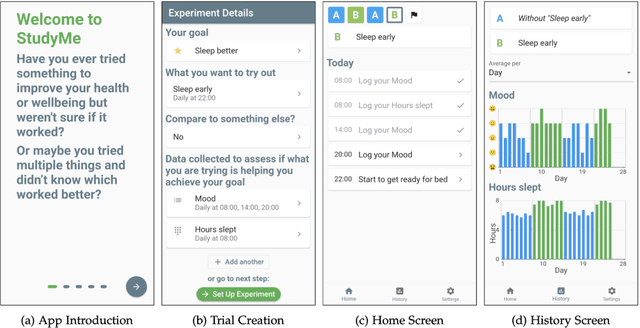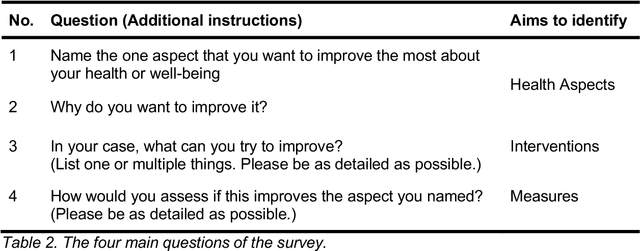Erwin Böttinger
Keyword-optimized Template Insertion for Clinical Information Extraction via Prompt-based Learning
Oct 31, 2023Abstract:Clinical note classification is a common clinical NLP task. However, annotated data-sets are scarse. Prompt-based learning has recently emerged as an effective method to adapt pre-trained models for text classification using only few training examples. A critical component of prompt design is the definition of the template (i.e. prompt text). The effect of template position, however, has been insufficiently investigated. This seems particularly important in the clinical setting, where task-relevant information is usually sparse in clinical notes. In this study we develop a keyword-optimized template insertion method (KOTI) and show how optimizing position can improve performance on several clinical tasks in a zero-shot and few-shot training setting.
StudyMe: A New Mobile App for User-Centric N-of-1 Trials
Jul 31, 2021



Abstract:N-of-1 trials are multi-crossover self-experiments that allow individuals to systematically evaluate the effect of interventions on their personal health goals. Although several tools for N-of-1 trials exist, none support non-experts in conducting their own user-centric trials. In this study we present StudyMe, an open-source mobile application that is freely available from https://play.google.com/store/apps/details?id=health.studyu.me and offers users flexibility and guidance in configuring every component of their trials. We also present research that informed the development of StudyMe. Through an initial survey with 272 participants, we learned that individuals are interested in a variety of personal health aspects and have unique ideas on how to improve them. In an iterative, user-centered development process with intermediate user tests we developed StudyMe that also features an educational part to communicate N-of-1 trial concepts. A final empirical evaluation of StudyMe showed that all participants were able to create their own trials successfully using StudyMe and the app achieved a very good usability rating. Our findings suggest that StudyMe provides a significant step towards enabling individuals to apply a systematic science-oriented approach to personalize health-related interventions and behavior modifications in their everyday lives.
 Add to Chrome
Add to Chrome Add to Firefox
Add to Firefox Add to Edge
Add to Edge